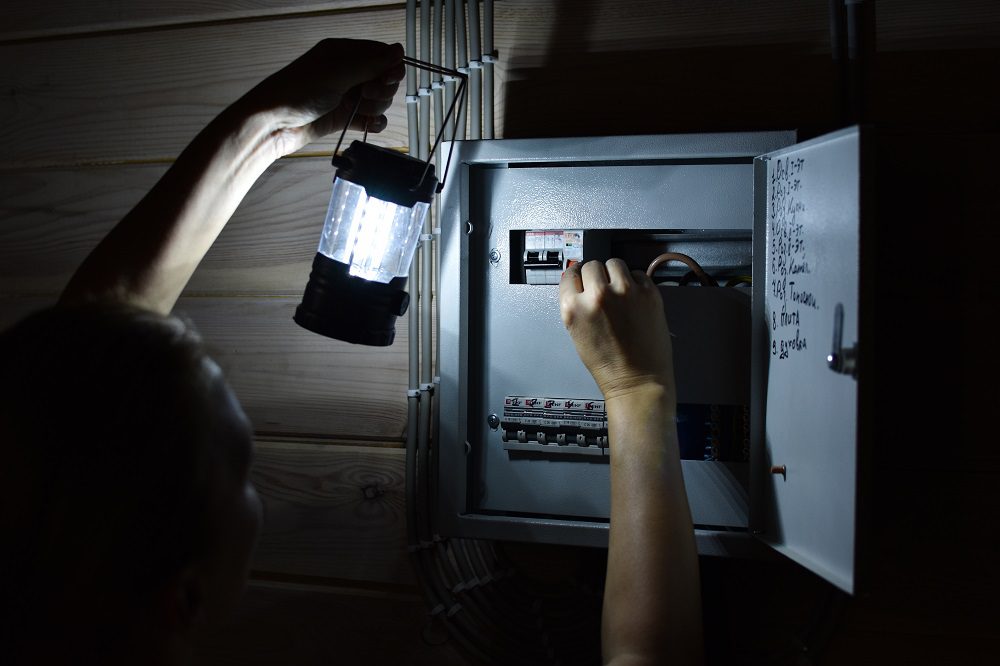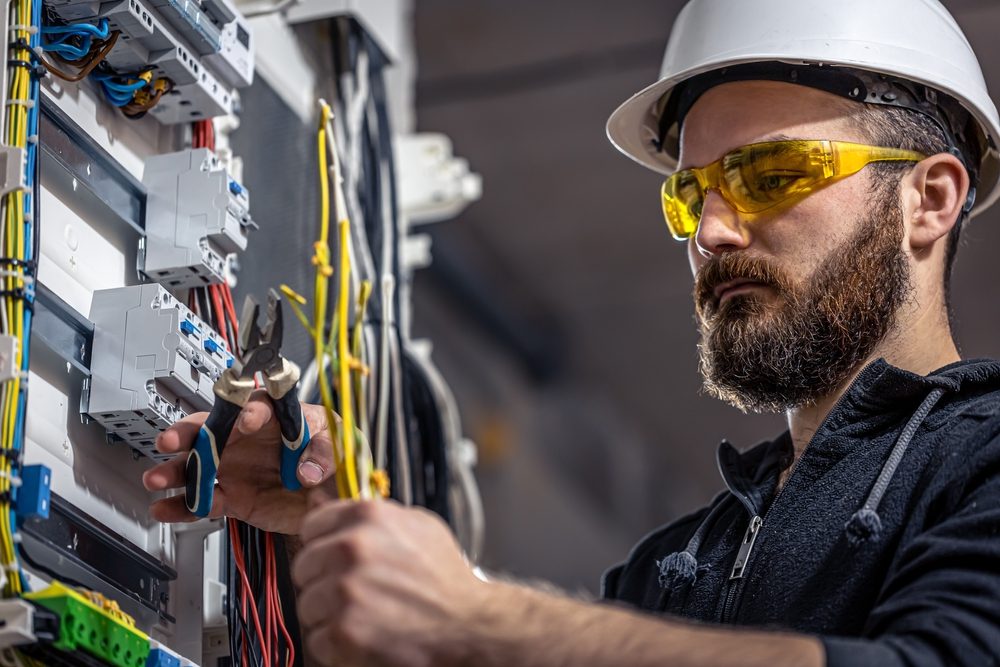How Much to Fix an Electrical Issue? Service Call Pricing, Who to Hire, and When a Handyman Can Help
Electric problems rarely wait for a free weekend. A breaker trips every time the dryer runs. A GFCI keeps clicking in the kitchen. Half a room goes dark after a storm. Homeowners in Charlotte want two things fast: a safe fix and a clear price. This article lays out what service calls usually cost, where a handyman fits, and when hiring a licensed electrician is non-negotiable. It reflects how Ewing Electric Co. handles electrical repair service across Charlotte neighborhoods such as Dilworth, Ballantyne, Plaza Midwood, SouthPark, Myers Park, NoDa, University City, and Steele Creek.
What a service call covers in Charlotte
A standard electrical service call includes dispatching a licensed electrician, on-site diagnostics, and the first block of labor. In Charlotte, many reputable contractors charge a trip fee that ranges from 79 to 149 dollars. Some fold this into a minimum service package such as 149 to 249 dollars that includes the first hour and basic materials. Ewing Electric Co. offers clear, upfront pricing before any work begins and never adds surprise fees mid-job.
Diagnostics matter. Electrical problems often cascade. A tripping breaker might point to a weak breaker, a tied-in space heater drawing too much current, or an upstream loose neutral. Paying for a careful diagnosis saves money compared to trying quick swaps that miss the root cause.
Typical price ranges by common repair
Pricing shifts with access, materials, and code requirements. These ballpark ranges reflect typical Charlotte jobs under 12 feet ceiling height with standard parts.
Replace a standard breaker: 125 to 225 dollars per breaker, parts and labor. Replace a GFCI outlet: 125 to 185 dollars for the first device, 90 to 150 for additional units on the same visit. Fix a tripping GFCI in a kitchen or bath: 150 to 300 dollars if the device is at fault; 300 to 600 if wiring faults or shared neutrals require correction. Replace a faulty light switch or dimmer: 120 to 220 dollars; smart dimmers run higher due to setup. Diagnose and repair a dead circuit: 200 to 600 dollars depending on access, number of junctions to open, and whether a damaged splice is behind finished drywall. Ceiling fan install with existing rated box: 175 to 325 dollars. If a fan-rated box is missing or support is weak, add 100 to 250. Dryer or range circuit repair: 250 to 600 dollars, higher if aluminum branch wiring or panel space issues arise. Panel breaker replacement vs. panel upgrade: a single breaker swap is modest; a full panel replacement in Charlotte usually runs 1,900 to 3,800 dollars depending on amperage, brand, surge protection, and utility coordination.
These are ranges, not quotes. Age of the home, basement or crawlspace access, plaster walls, and prior handyman work can add time. Ewing Electric Co. documents findings on-site and prices the fix before work proceeds.
Handyman or electrician: who should handle it?
There is a place for a good handyman. Replacing a broken wall plate, reseating a loose doorbell chime, or swapping a simple light fixture on an existing rated box with the power off can be reasonable handyman tasks. That said, North Carolina requires a licensed electrical contractor for most electrical work that involves circuit alteration, panel connections, new wiring, or code compliance. Insurers and home sale inspectors also expect licensed signatures on electrical repairs, especially after a claim or during a due electrical repair Charlotte Ewing Electric Co diligence period.
If the task touches the breaker panel, installs a new circuit, modifies bathroom or kitchen wiring, deals with aluminum branch wiring, or fixes recurrent tripping, hire a licensed electrician. This protects the homeowner from hazards and from failing future inspections. Ewing Electric Co. handles both urgent fixes and code-correct upgrades that pass inspection the first time.
Signs that point to a licensed electrician
Breaker trips more than once after a reset or feels warm to the touch. Lights dim when large appliances start, especially on newer HVAC or EV chargers. Outlets show scorch marks, smell like burnt plastic, or feel loose in the box. GFCI or AFCI devices trip randomly or refuse to reset. You see multi-wire branches, shared neutrals, or aluminum wiring.
Any of these hints at load issues, loose connections, or code violations. A handyman may replace a device, but the underlying fault can remain. An electrician traces the circuit, tests continuity and resistance, and verifies grounding and bonding.
What drives cost beyond the device
Homeowners often focus on the part price, but labor and access drive most electrical repair service costs in Charlotte. Older homes in neighborhoods like Dilworth and Plaza Midwood often have plaster walls and shallow metal boxes that limit device depth. Crawlspaces in Steele Creek can be tight or wet after rain. Attics in SouthPark may require catwalks to move safely. These conditions add time.
Brand matters in panels. Some legacy panels and breakers are discontinued or flagged by insurers. Swapping a breaker in a problematic panel may require an approved replacement brand or, in rare cases, a panel change for safety and insurability. Ewing Electric Co. explains options clearly and shows photos of the panel label so the homeowner understands the reasoning.
Permits and inspections affect price for larger repairs. Running a new dedicated circuit to a microwave, hot tub, or EV charger requires a permit in Charlotte and Mecklenburg County. Permit fees are modest compared to the risk of non-compliant work.
How Ewing Electric Co. prices a service call
Ewing Electric Co. starts with a clear dispatch window and texts when en route. On arrival, the electrician listens to the symptom history. Small talk is short; the focus is on the fault. The pro checks the panel first, then the affected devices, and maps the circuit if needed. After diagnosis, the electrician presents fixed-price options. If a simple fix solves it during the diagnostic window, the final price reflects that. If more time or materials are required, the price is quoted before work continues.
For transparency, the techs label circuits, photograph conditions, and note any code issues that should be corrected soon, even if not urgent. Many homeowners appreciate leaving the home safer than it was found, such as replacing a loose receptacle strap or adding arc-fault protection where required by current code during related work.
Small fixes homeowners can do safely
Safety comes first. Power must be off at the breaker, and a plug-in tester or non-contact voltage tester should confirm it. Tightening a loose switch plate or replacing a broken plastic receptacle cover is safe and cheap. Changing a light bulb with the switch off is fine. Anything beyond that starts to cross into device replacement, which carries risk if the box is shallow or the connections are backstabbed. If someone is unsure about copper versus aluminum, neutral separation in subpanels, or the presence of a fan-rated box, it is time to call a pro.
Preventive steps that reduce future repair costs
Charlotte’s humidity and seasonal storms stress electrical systems. Corrosion shows up in outdoor receptacles, pool equipment, and meter bases. GFCI and weather-resistant receptacles outdoors should be replaced every 7 to 10 years, sometimes sooner at lakefront or exposed sites. Surge protection at the service panel guards electronics and HVAC boards against lightning and utility spikes that are common in summer storms. An annual panel check, which Ewing Electric Co. provides during routine visits, catches loose terminations and heat discoloration early.
Emergency, after-hours, and same-day pricing in Charlotte
Not every failure is urgent. A tripped bedroom circuit can often wait until morning. A burning smell, arcing sound, or main breaker trip is different. After-hours and emergency calls usually carry a premium, often 50 to 100 percent more than standard rates. Ewing Electric Co. keeps a roster for same-day service across Charlotte and can prioritize hazards such as partial power, water intrusion at electrical equipment, or a failed sump pump circuit during heavy rain.
If cost is a concern, ask whether a temporary safe restore is possible now, with a full repair during regular hours. Often a circuit can be isolated and made safe to bridge the gap.
What to ask before hiring in Charlotte
A short conversation reveals a lot. Ask for the license number and insurance. Ask how pricing works, whether there is a trip fee, and what the diagnostic includes. Request photos or a simple sketch of the issue after diagnosis. Clarify whether parts are stocked on the truck. If the home sits in an HOA community in Ballantyne or SouthPark, ask about scheduling that respects quiet hours and parking rules. Ewing Electric Co. handles these details daily and keeps communication clean.
Where a handyman makes sense
There are narrow cases where a handyman is a practical choice and saves money. Swapping a decorative light fixture onto an existing fan-rated or light-rated box with identical wiring may be straightforward. Mounting a TV and routing low-voltage cables is squarely in handyman territory. Minor cosmetic items such as covers, trim rings, and battery doorbell swaps fit well. As soon as neutral sharing, grounding, or box fill becomes part of the task, it crosses into licensed electrical work. A handyman who knows when to refer is valuable; the best ones in Charlotte refer electrical repair service to Ewing Electric Co. for permit-required or safety-critical work.
Budgeting tips for homeowners
Plan for the service call minimum. If several small items need attention, bundle them in one visit to spread that fixed cost. Group similar tasks, such as replacing multiple GFCIs or dimmers, to reduce per-item pricing. Keep notes about symptoms with dates; intermittent faults are easier to diagnose with a timeline. If selling a home in Myers Park or Dilworth, consider a pre-listing electrical check to avoid repair delays under contract.



Why local experience matters
Charlotte housing stock spans new builds in Berewick to 1920s bungalows in Elizabeth. Aluminum branch wiring is common in some 1960s and 1970s homes. Knob-and-tube pops up in older remodels. Mixed copper and aluminum terminations, shared neutrals, and bootleg grounds are common finds during inspections. A local electrician who has seen these patterns will find faults faster and quote accurately. Ewing Electric Co. brings that neighborhood-specific knowledge and carries the parts to finish most repairs in one trip.
Ready for clear pricing and a safe fix?
If lights flicker, breakers trip, or outlets feel warm, it is time to schedule an electrical repair service visit. Ewing Electric Co. serves Charlotte and nearby areas with upfront pricing, licensed electricians, and same-day options. Call, text, or book online for a fast diagnosis and a quote before work starts. One visit, clear answers, and a safe home.
Ewing Electric Co provides dependable residential and commercial electrical services in Charlotte, NC. Family-owned for over 35 years, we handle electrical panel upgrades, EV charger installation, generator installation, whole-home rewiring, and 24/7 emergency repairs. Our licensed electricians deliver code-compliant, energy-efficient solutions with honest pricing and careful workmanship. From quick home fixes to full commercial installations, we’re known for reliable service done right the first time. Proudly serving Charlotte, Matthews, Mint Hill, and nearby communities.
Ewing Electric Co
7316 Wallace Rd STE D
Charlotte, NC 28212, USA
Phone: (704) 804-3320
Website: https://ewingelectricco.com/ | Google Site
Social: Facebook | Instagram | Twitter
Map: View on Google Maps